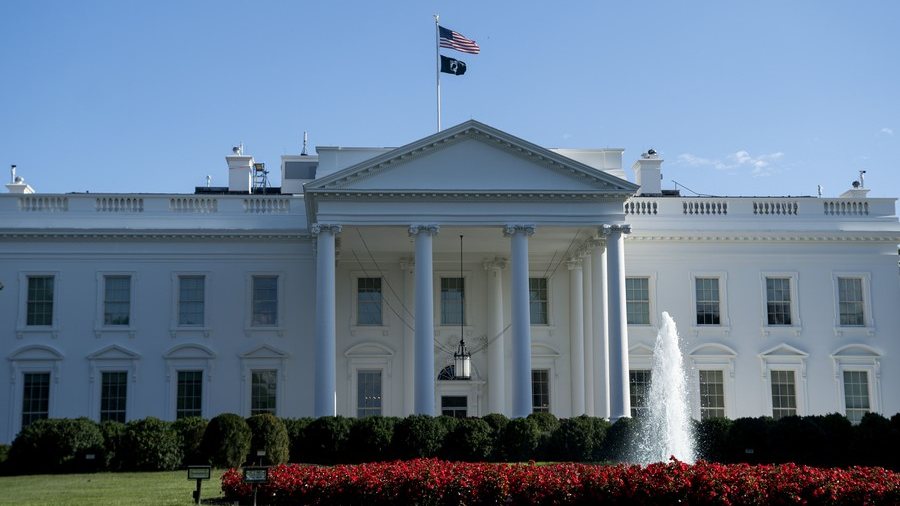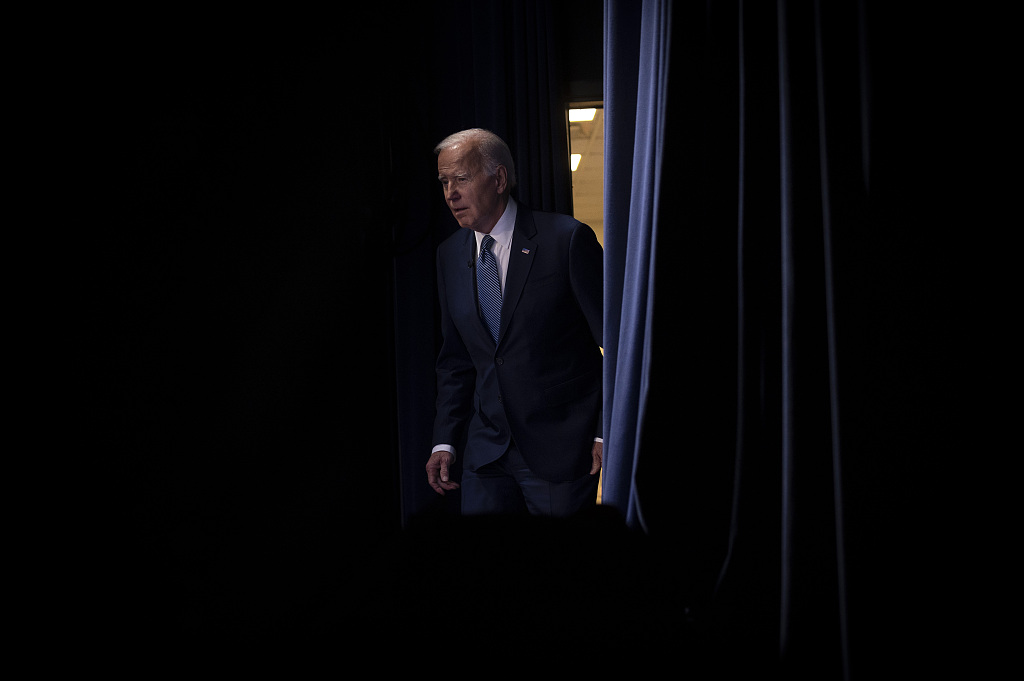
The White House in Washington, D.C., U.S., August 16, 2022. /Xinhua
The White House in Washington, D.C., U.S., August 16, 2022. /Xinhua
Editor's note: Abu Naser Al Farabi is a Dhaka-based columnist and analyst focusing on international politics, especially Asian affairs. The article reflects the author's opinions and not necessarily those of CGTN.
The Biden administration unveiled its National Security Strategy 2022, highlighting its national security concerns and how the administration plans to deal with them. Yes, the United States holds a prerogative to draw up its strategic pathways. But given the U.S.' overextended global stakes, its national strategic scheme's capacity to determine Washington's next political and strategic discourse and consequently influence global security and strategic events requires greater scrutiny.
Unfortunately, when the world appears heading to a looming "economic and financial Armageddon" and people are gearing up for hopes, prospects, and concerted efforts from the global powerhouses, the U.S. have taken on a more confrontational national security strategy. By singling out China as its sole global rival and portraying it as a threat to the so-called international rules-based order, not only has Washington delivered a blow to a potential collaboration between the two major powers, it has also manifested an utter mischaracterization of China as well.
The Biden administration's National Security Strategy is an egregious example of Washington's distorted perceptions of Beijing and a case study of the long-standing threat-inflation tendency built in the very American national psyche.
The U.S. constant claim that China is "the most serious long-term challenge to the international order" is incorrect, bearing the hallmarks of deliberate threat inflation and exposing the elephantine "intellectual aloofness" in American society and political establishment about China and its strategic end goals, both in general and in relation to other countries.
The U.S. mischaracterization of China or its other adversaries by inflating the threat perception can be attributed to America's state structure. The U.S. is not a typical nation-state. It's not an overwhelming presence in the global East with a strong politico-social base built over its inherent culture, ethnicity, race, religion, and philosophy. Rather America is a large cosmopolitan-size power-hungry state entity with a political and cultural identity, like most others in the global West, relying on some beliefs, norms, and values – the so-called universal liberal ideals. Such characteristics of state structure tend "to create threat narratives that bolster domestic solidarity and legitimacy," said Michael D. Swaine on The National Interest.
Additionally, U.S. officials and policy analysts routinely invoke imagined challenges from China, arguing for zero-sum confrontational policies against China. In the highly "oligarchic and syndicated" U.S. political system, raising the imaginary "China threat" is both politically convenient and financially lucrative.
For the political establishment, threat inflation in most cases works as a political shroud to cover its domestic policy blunders. Blaming China for all the menaces both at home and abroad helps the political leadership to divert public attention from increasing political depravity and dereliction in its political system. As reported by Helsinki Times, the U.S. Congress planned to allocate around $500 million to churn out anti-China news coverage.

U.S. President Joe Biden walks onstage to deliver virtual remarks in Washington, D.C., U.S., October 11, 2022. /CFP
U.S. President Joe Biden walks onstage to deliver virtual remarks in Washington, D.C., U.S., October 11, 2022. /CFP
On the other hand, for the U.S. military-industrial giants, their "Pentagon cohorts" and opportunist China hawks, stoking geopolitical tension by regularly invoking the so-called China threat has become money-printing machines. Presenting China as an "existential threat to the U.S. and its allies" has led to ever-inflating U.S. defense budgets, coming from American taxpayers' money that ends up in vested groups along this line.
Even in an attempt to intellectually make-believe their contrived "China threat" as reported by Ben Freeman, director of the Foreign Influence Transparency Initiative at the Center for International Policy, at least $1 billion in U.S. government and defense-contractor funding went to the top 50 think tanks in America between 2014 and 2019, including the RAND Corporation, Center for a New American Security and New America.
Finally, the mischaracterization of China can be attributed to the deep-rooted "misconceptions out of ignorance" about China, existing in Washington's political discourse and Western society as a whole. Americans, in general, the Western people, know or/and make them know less about China – more specifically about its externally non-belligerent history, egalitarian foreign policy principles, and irenic ascendance into global preeminence.
It is due to the deliberate misrepresentation of China and its activities by the vested political agents and anti-China hawks for their political advantage and financial benefits, and disseminated in a great volume by the vast anti-China agenda-driven media machine.
The newly adopted National Security Strategy by the Biden administration is the latest tactic that epitomizes the dangerous escalating anti-China tendency in Washington's policy discourse.
(If you want to contribute and have specific expertise, please contact us at opinions@cgtn.com. Follow @thouse_opinions on Twitter to discover the latest commentaries in the CGTN Opinion Section.)